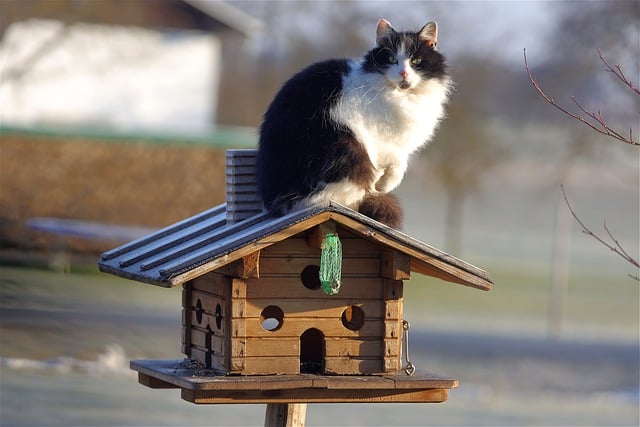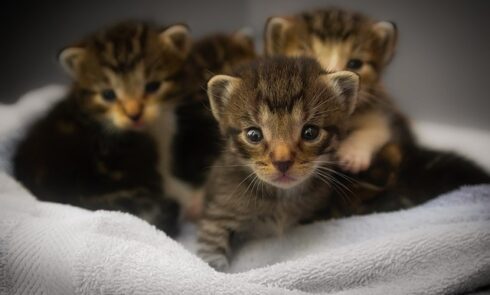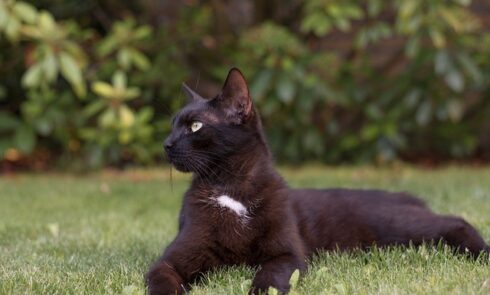If you’re a cat owner, there’s a good chance you’ve experienced the somewhat unsettling scenario of your feline friend presenting you with a dead bird. While it may leave you wondering what to make of this “gift,” it’s a behavior deeply rooted in your cat’s instincts. In this blog post, we’ll explore why cats bring you dead birds, the behavior’s evolutionary significance, and how you can manage this aspect of your cat’s nature.
Understanding Cat Behavior
The Hunting Instinct
Cats are natural hunters. This predatory behavior stems from their ancestors, who relied on hunting small animals for survival. Even domesticated cats have retained this instinct. When your cat brings you a dead bird, it’s following an age-old practice embedded in its DNA.
Feline Instincts
Several key instincts drive this behavior:
- Predatory Drive: Cats have a strong predatory instinct, which is why they stalk and capture prey.
- Territorial Marking: By bringing you their catch, cats are marking their territory and demonstrating their role as a provider within their “family.”
- Play and Training: In the wild, mother cats teach their kittens how to hunt by bringing them dead or injured prey. Your cat might be treating you similarly, teaching you how to handle a “hunt.”
Evolutionary Significance
Survival Mechanism
In the wild, a successful hunt means survival. By bringing you dead birds, your cat is showcasing its hunting prowess, a trait that was essential for survival in its ancestral environment.
Social Bonding
Cats are social creatures, and sharing prey is a way to strengthen social bonds. Bringing you a dead bird can be seen as a gesture of affection, a way of including you in their circle of trust.
Maternal Instincts
Mother cats teach their kittens to hunt by bringing them prey. When your cat brings you a dead bird, it might be acting on its maternal instincts, attempting to teach you how to hunt and survive.
How to Manage This Behavior

Keep Cats Indoors
One effective way to reduce your cat’s hunting activity is to keep them indoors. Indoor cats are less likely to encounter birds and other wildlife, minimizing the chances of them bringing you dead animals.
Provide Enrichment
Cats need mental and physical stimulation to satisfy their hunting instincts. Provide interactive toys, puzzle feeders, and regular playtime to keep your cat engaged and entertained.
Use a Bell Collar
A bell collar can reduce your cat’s hunting success by alerting potential prey to their presence. This simple deterrent can save countless birds and small animals from becoming your cat’s next gift.
Positive Reinforcement
Train your cat using positive reinforcement techniques. Reward desired behaviors with treats, affection, and praise, while ignoring or redirecting unwanted behaviors.
Five Fascinating Facts About Why Cats Bring You Dead Birds
1. Instinct from Wild Ancestors
Even though your cat may enjoy a life of leisure and pampering, their behavior is still influenced by their wild ancestors. In the wild, felines are solitary hunters, and the act of capturing and presenting prey serves as evidence of their hunting skills. Domestic cats, irrespective of their diet troves granted by their human companions, can’t easily shake off these ingrained practices.
2. Need for Recognition
Cats bring dead birds to their owners as a form of offering or tribute. These gifts can be seen as an attempt to gain recognition for their hunting skills. By presenting you with a bird, your cat is expressing its role as a capable hunter, seeking appreciation and possibly even praise for its prowess.
3. Training Simulations
In the natural world, mother cats take a crucial role in teaching their kittens how to hunt by bringing them prey. Domestic cats extend this instinct onto their human households, aiming to impart “survival” skills by sharing their catch. This behavior is a form of simulation training, where your cat demonstrates how to hunt effectively.
4. Social Integration
Cats are often perceived as solitary creatures, but they actually have complex social structures. Bringing you a dead bird can be an attempt by your cat to include you in their social group or ‘family.’ This act of sharing is a way for your cat to say, “You’re a part of my inner circle.”
5. Psychological Enrichment
Capturing prey is a mentally stimulating activity for cats. The entire process—stalking, capturing, and presenting dead birds—is a significant source of psychological enrichment. This activity helps keep domestic cats’ minds sharp and provides them with an outlet for their natural predatory behaviors, ultimately supporting their mental well-being.
Conclusion
Cats bringing you dead birds is a behavior rooted in their instincts and evolutionary history. Understanding the reasons behind this behavior can help you manage it effectively and ensure a harmonious relationship with your feline companion. Remember, your cat is acting out of love and instinct, so rather than scolding them, focus on providing alternatives that satisfy their hunting drive.
For more insights into cat behavior and tips on creating a nurturing environment for your pet, be sure to follow our blog. And if you have any questions or need personalized advice, don’t hesitate to reach out to our team of animal behavior experts.
FAQ
Cats bring dead birds into the house because of their natural hunting instinct and desire to share their ‘prize’ with their human family. This behavior is a way for cats to show off their hunting skills and to mark their territory. They may also be treating you as they would their kittens, trying to teach you how to hunt.
Yes, it is quite normal. This behavior is deeply rooted in a cat’s predatory instincts and is seen as a natural expression of their prowess as hunters. It can also be a sign of affection and trust, as your cat considers you part of its family.
Scolding your cat is not advisable, as it is acting on instinct and may not understand why it is being punished. Instead, focus on preventive measures such as keeping your cat indoors, using a bell collar, and providing plenty of enrichment activities to satisfy its hunting drive.
While the behavior itself is not harmful, consistently hunting and interacting with wildlife may expose your cat to potential dangers such as parasites, diseases, or injuries from prey. Keeping your cat indoors and ensuring it has safe, engaging activities can mitigate these risks.
For more insights, consider consulting with a veterinarian or an animal behavior expert. Additionally, plenty of resources, books, and blogs, including this one, can help you understand and manage your cat’s natural instincts more effectively.


